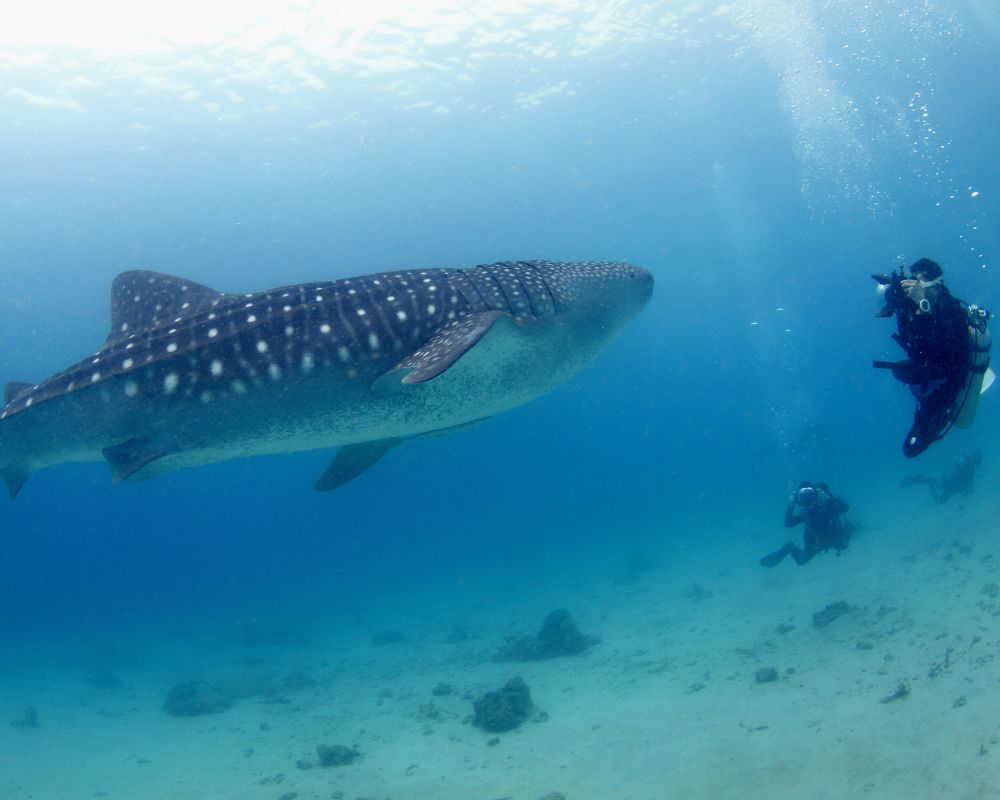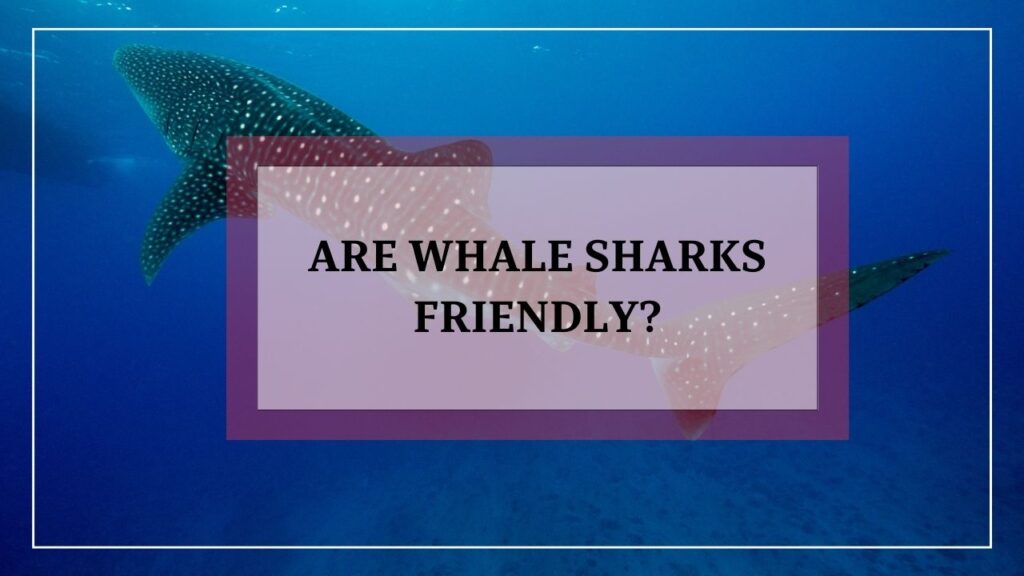Hey there! Have you ever wondered if whale sharks are friendly? If you’re like most people, you might assume that these gentle giants of the ocean are always happy to see us humans. But what if I told you that the reality is more complicated than that?
In this blog post, we’re going to explore the truth about the friendliness of whale sharks. We’ll delve into their behavior, habitat, and interactions with humans, and help you understand the factors that contribute to the ongoing debate among experts and enthusiasts.
Now, I know what you might be thinking – who am I to talk about whale sharks? Well, I’m just a regular person who happens to be fascinated by these amazing creatures. So, if you’re ready to dive into the world of whale sharks and learn the truth about their friendliness, let’s get started!
Are Whale Sharks Friendly?

Yes, whale sharks are generally considered to be friendly and harmless to humans. While they are large animals, they have a gentle temperament and are known to be docile around humans. However, it’s important to remember that they are still wild animals and their behavior can be unpredictable, so it’s crucial to respect their space and not interfere with their natural activities.
Let’s take a closer look at their temperament and behavior to answer the question: are whale sharks friendly?
The Perception Of Whale Sharks As Friendly Animals
Whale sharks are one of the most recognizable and beloved marine creatures, thanks in part to their massive size, unique patterns, and docile demeanor. They’re known to swim slowly and gracefully, allowing humans to approach them without fear of attack or harm. This has led to the widespread belief that whale sharks are friendly, harmless creatures that pose no threat to humans.
Temperament And Behavior Of Whale Sharks Around Humans
While it’s true that whale sharks are generally peaceful animals, their behavior around humans can vary depending on a number of factors. For example, young whale sharks may be more curious and playful around humans, while older individuals may be more wary and cautious.
Additionally, the environment in which they’re encountered can also play a role in their behavior. In busy tourist areas where whale sharks are frequently encountered, they may become stressed or agitated by the presence of so many people.
In rare cases, whale sharks have been known to exhibit aggressive behavior towards humans, usually in response to feeling threatened or provoked. However, these instances are extremely rare and are usually the result of human interference or harassment.
Factors That Influence Whale Shark Behavior
Whale sharks are highly intelligent creatures that are capable of complex social behaviors, but much of their behavior remains a mystery to scientists. There is a wide variability of factors that play a major role in their behavior which include:
1. Location, Location, Location
Whale sharks can be found in a variety of habitats, from the open ocean to coral reefs and estuaries. The specific conditions of their environment can have a big impact on their behavior. For example, whale sharks may be more active and social in areas with plenty of food and good visibility. Conversely, in areas with poor visibility or strong currents, they may be more solitary and cautious.
2. Age Ain’t Nothing But A Number
Just like with humans, age can have a big impact on whale shark behavior. Young whale sharks are often more curious and playful, while older individuals tend to be more solitary and cautious. This is probably because older individuals have had more time to learn from their experiences and develop survival strategies.
3. Friends In High Places
Whale sharks are generally solitary creatures, but they’re not opposed to a little socializing now and then. In areas with high concentrations of food, they may form loose associations with other whale sharks. These associations can be short-lived or long-term, depending on the availability of food and the individual preferences of the sharks involved.
Interactions with Humans
As a result, there are many ways that humans interact with them, including through tourism, research, and conservation efforts. Let’s take a closer look at each of these interactions and how they can impact these gentle giants.
Tourism
Whale shark tourism has become a popular industry in many parts of the world, with tourists flocking to areas where they can swim with or observe these magnificent creatures in their natural habitat. While this can be a wonderful experience, it’s important to approach it responsibly and sustainably.
Responsible tourism practices include limiting the number of tourists that interact with the whale sharks at any given time, avoiding touching or riding on the animals, and not using flash photography. These measures can help to minimize the impact of human interaction on whale sharks and ensure that they continue to thrive in their natural environment.
Research
Scientists and researchers have also been studying whale sharks for many years, seeking to understand more about their behavior, migratory patterns, and physiology. This research is crucial for the conservation and protection of these animals, as well as for our understanding of the broader marine ecosystem.
Research on whale sharks typically involves tagging the animals with satellite or acoustic tags, which allows researchers to track their movements and gather data on their behavior. These tags are usually attached to the dorsal fin of the whale shark and can stay in place for several months or even years.
FAQs
Do Whale Sharks Like Humans?
Whale sharks do not have emotions like humans, so it’s difficult to say whether they like humans or not. However, they are known to be curious and approachable toward humans.
Do Whale Sharks Ever Attack Humans?
Whale sharks are not known to be aggressive toward humans and there have been no reports of whale shark attacks on humans.
Is It Safe To Ride A Whale Shark?
No, it is not safe to ride a whale shark or any other wild animal. Riding on a whale shark can be harmful to the animal and can also put the rider at risk of injury.
Is It Scary To Swim With Whale Sharks?
Swimming with whale sharks can be an exhilarating experience, but some people may find it intimidating due to their large size. However, whale sharks are gentle creatures and pose no threat to humans.[1]
Do Whale Sharks Bite?
Whale sharks do not have the teeth or jaw structure to bite humans, and they primarily feed on plankton and small fish. However, accidental bites may occur if humans get too close to their mouths while they are feeding.

